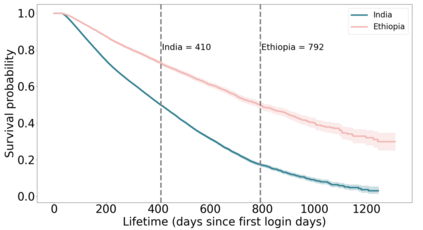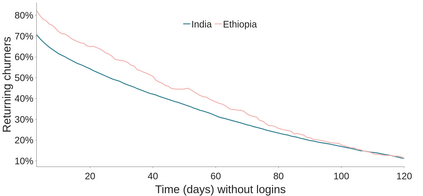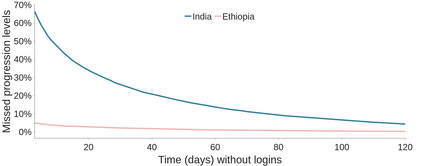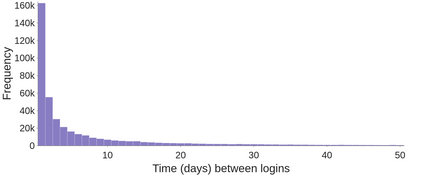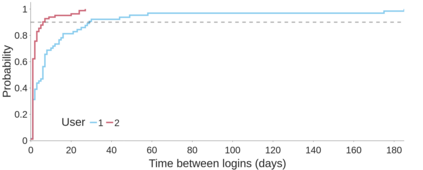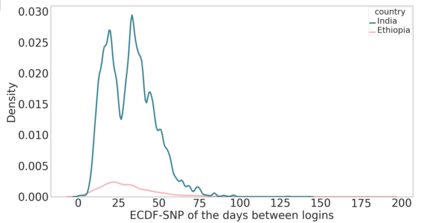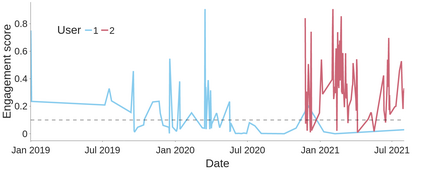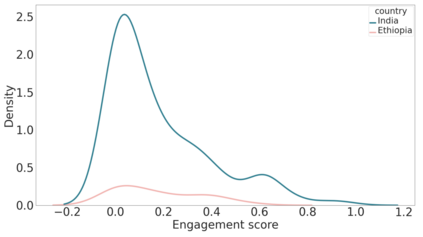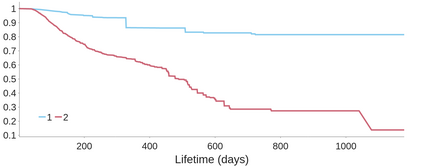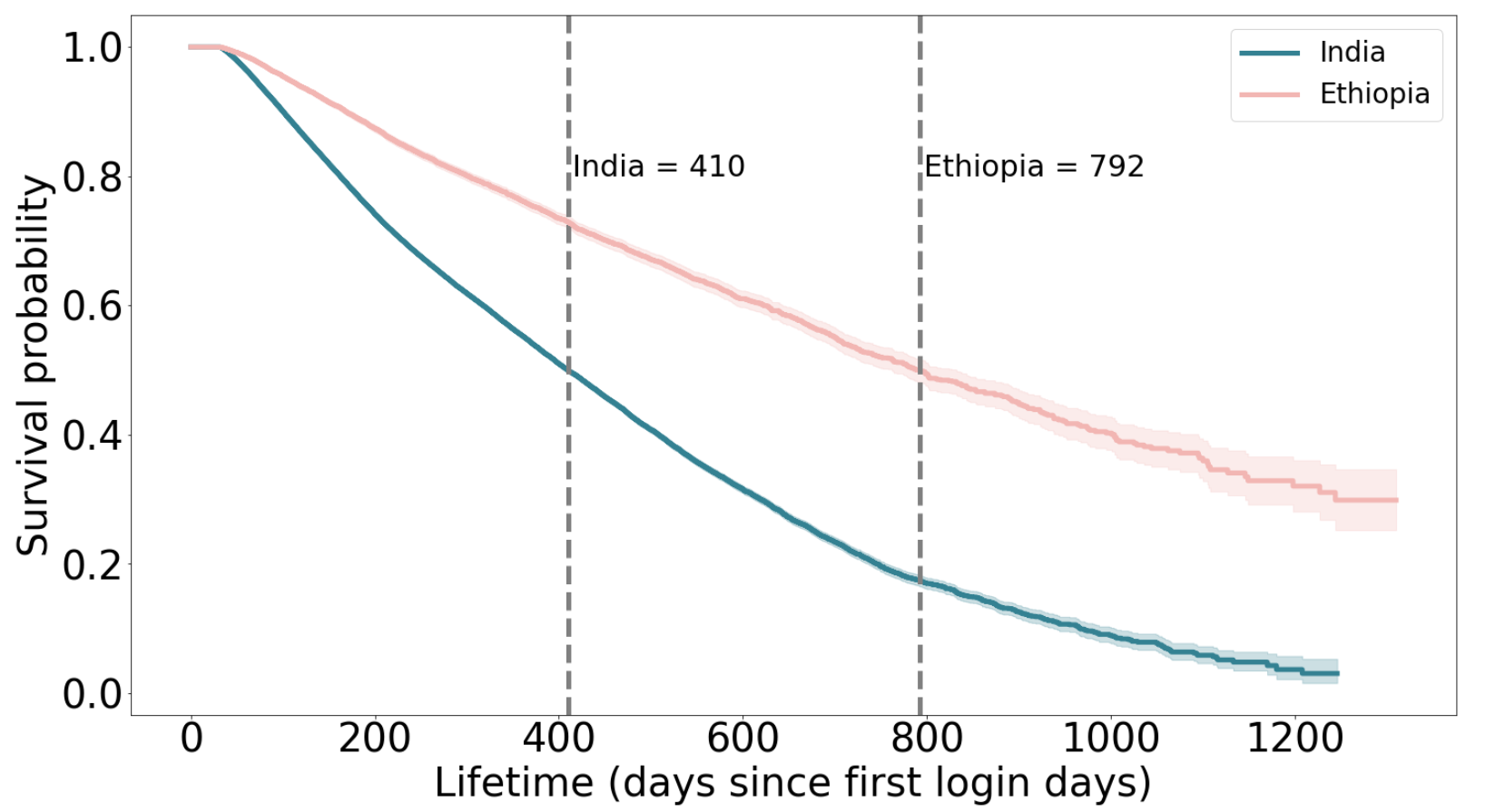Mobile health apps are revolutionizing the healthcare ecosystem by improving communication, efficiency, and quality of service. In low- and middle-income countries, they also play a unique role as a source of information about health outcomes and behaviors of patients and healthcare workers, while providing a suitable channel to deliver both personalized and collective policy interventions. We propose a framework to study user engagement with mobile health, focusing on healthcare workers and digital health apps designed to support them in resource-poor settings. The behavioral logs produced by these apps can be transformed into daily time series characterizing each user's activity. We use probabilistic and survival analysis to build multiple personalized measures of meaningful engagement, which could serve to tailor content and digital interventions suiting each health worker's specific needs. Special attention is given to the problem of detecting churn, understood as a marker of complete disengagement. We discuss the application of our methods to the Indian and Ethiopian users of the Safe Delivery App, a capacity-building tool for skilled birth attendants. This work represents an important step towards a full characterization of user engagement in mobile health applications, which can significantly enhance the abilities of health workers and, ultimately, save lives.
翻译:移动保健应用软件正在通过改善通信、效率和服务质量,使保健生态系统发生革命性革命。在中低收入国家,它们也发挥独特的作用,成为关于病人和保健工作者健康结果和行为的信息来源,同时提供一个适当的渠道,提供个性化和集体政策干预。我们提议了一个框架,研究用户参与移动保健的情况,重点是保健工作者和数字保健应用软件,目的是在资源贫乏的环境中支持他们。这些应用软件所产生的行为记录可以转换成每个用户活动的日常时间序列。我们利用概率和生存分析来建立多种个性化的有意义参与措施,这有助于根据每个保健工作者的具体需求定制内容和数字干预措施。我们特别注意探测查恩的问题,作为完全脱离的标志。我们讨论了我们的方法对印度和埃塞俄比亚用户使用安全分娩应用的方法,这是熟练助产士的能力建设工具。这项工作是向全面描述用户参与移动保健应用情况迈出的重要一步,这可以大大提高保健工作者的能力,最终拯救生命。

